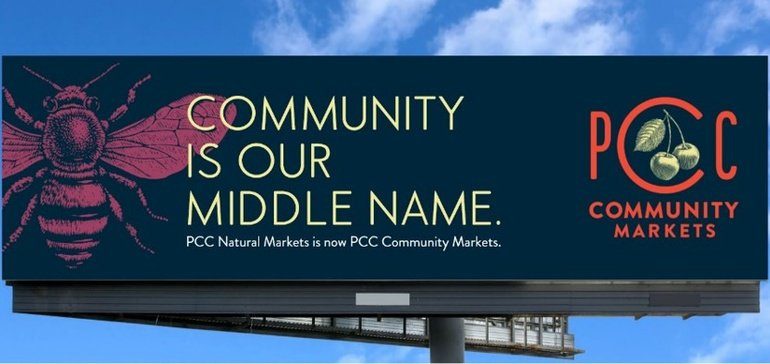
PCC Vows to Eliminate Deli Plastics by 2022

The nation’s largest co-op says it uses more than 5 million plastic deli containers each year and will replace petroleum-based plastics with biodegradable compostable containers.
The move follows PCC’s earlier actions in 2015 replacing plastic straws and utensils with compostable ones. On July 1 of this year, the City Of Seattle’s ban on these took effect. PCC also led by eliminating plastic grocery bags across its stores, five years before the City of Seattle implemented its plastic bag ban in 2012.
Compostable trays for fresh meats were introduced in 2010.
“Our co-op’s impact on the environment and our role in the proliferation of plastic is something we discuss frequently – from the use of plastic containers for baked goods and deli items to plastic beverage bottles and yogurt cups,” said Brenna Davis, PCC’s VP of social and environmental sustainability, in a statement.
“For our sustainability goals, we chose to focus on those areas of our stores we can control, like shopping bags, straws, utensils, plates, takeaway containers and, now, packaging in our deli. Our hope is that by taking the lead, we can influence change across the region and the broader grocery and packaged goods industries.”
A dedication to waste reduction is a thread that runs through the co-op’s 65-year history. As early as 1978, it was among the first in the Puget Sound to offer recycling in its Kirkland store and, in 1994, it led the region when it implemented composting across all its locations.
Additionally, like many grocery cooperatives, PCC’s early stores took a “zero waste” approach to grocery, introducing many shoppers to the idea of shopping in “bulk.” This approach allowed members and shoppers to use their own containers for items like flour, sugar, spices, nuts, peanut butter and more.
PCC was WholeFoods Magazine's Retailer of the Year in 2016.

The editorial team at WholeFoods Magazine has decades of experiences reporting on natural products industry news, trends, and more. This national, monthly business-to-business magazine has been published continuously for nearly 40 years (the magazine was founded in 1977, and has been owned by Wainer Finest Communications since 1984). It is the longest-tenured media outlet of its kind in the natural products industry. The editorial focus at WholeFoods Magazine is, and always has been, on informing and educating members of the natural products industry.
The Magazine
Information
About Us
NOTE: WholeFoods Magazine is a business-to-business publication. Information on this site should not be considered medical advice or a way to diagnose or treat any disease or illness. Always seek the advice of a medical professional before making lifestyle changes, including taking a dietary supplement. The opinions expressed by contributors and experts quoted in articles are not necessarily those of the publisher or editors of WholeFoods.







